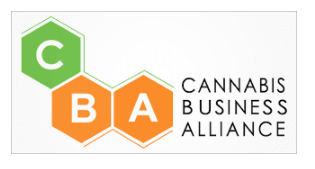DENVER (December 20, 2017) — As the year comes to a close, the Cannabis Business Alliance (CBA) reviews the highlights of 2017 and provides an outlook for 2018.
Statewide Prosperity. Marking five years since Colorado citizens voted to pass Amendment 64—the legislative act which legalized adult-use marijuana in the Centennial State—2017 proved to be a year of enormous growth for the cannabis industry. In just the first eight months of 2017, the revenue from Colorado’s cannabis market reached $1 billion – an increase of 21 percent over 2016 numbers. According to the Colorado Department of Revenue, as of December 2017, taxes, license and fee revenue totaled over $226.1 million, 16 percent more than the final tally of $193.6 million in 2016. The high revenue resulted in a surge of tax-dollar-sourced funding for community programs and services ranging from school construction to substance abuse prevention.
Unemployment has also held steady at around 2.3 percent – often ranking the lowest in the country – with the cannabis industry providing more than 23,000 people in Colorado with full-time jobs as of January 2017, excluding contractors and ancillary businesses. Additionally, according to a 2017 study by CBRE, a commercial real-estate company, Colorado’s real estate market has been privy to the positive effects of cannabis legalization. The average sales price of marijuana-occupied industrial properties in Denver rose 17.6 percent in 2017 to $115 per square foot, up from $98 per square foot in 2014. Property values in the immediate vicinity of Denver’s retail marijuana establishments showed an 8 percent increase since Amendment 64 took effect in January 2014, according to a study from the Wisconsin School of Business at the University of Wisconsin–Madison.
Legislation Takes Effect. The 2017 Colorado General Assembly Session resulted in a myriad of successful regulatory propositions for the cannabis industry, including a crackdown on black market cannabis products sold on websites such as Craig’s List (SB17-015). Additionally, HB17-1034 intended to enact licensing changes to the medical marijuana code to align with the retail marijuana code. CBA successfully amended the bill to allow medical MIP to MIP transfers.
2018 Outlook
Operational Efficiency & Economic Freedom. Concerns over the newly revised medical and retail rules that have been proposed by the Marijuana Enforcement Division (MED) are likely to spur efforts towards creating a more efficient and innovative cannabis industry in Colorado in 2018. Under the adjustments made to rule numbers M/R 1504 – for Medical and Retail Marijuana Testing Program – Sampling Procedures, cultivators and manufacturers are now required to test cannabis at a much higher rate than other significantly more harmful substances, such as alcohol. As a result, business revenue will suffer by losing a great volume of product through minimum sample weights and increased sample sizes should the regulations not be amended.
In addition to the cost burden for operators, the updated testing rules will place an enormous amount of pressure on the limited number of laboratories operating in Colorado, which are not are not equipped to handle the sheer volume of samples that will be required when the testing and sampling rules take effect in January 2018. CBA looks forward to working with Colorado lawmakers in the new year to modify the regulations and make way for renewed economic prosperity and industry efficiency.
Sunset Bill Review. CBA will work with Colorado officials and its Department of Regulatory Agencies (DORA) to continue research on appropriate cannabis regulations, requirements and testing procedures. As a fledgling industry, the specifications and regulatory codes regarding cannabis will continue to be examined in 2018 by DORA as part of its Sunset Review on retail marijuana – HB16-1261.
More States to Welcome Cannabis. In 2018, adult-use legalization programs are expected to come online in California (January 2018), Maine (Feb. 2018) and Massachusetts (July 2018). With the 2018 midterm elections in November, ballot initiatives legalizing adult-use cannabis could be seen in Arizona, Arkansas, Connecticut, Delaware, Florida, Illinois, Maryland, Michigan, Minnesota, Montana, New Hampshire, New York, Ohio, Rhode Island and Vermont.
For more information or to schedule an interview, please contact Shawna McGregor at 917-971-7852 or shawna@rosengrouppr.com.
About the Cannabis Business Alliance (CBA)
The Cannabis Business Alliance (CBA) encourages sensible policies that stimulate economic development and consumer transparency for the medical and retail marijuana industry. CBA promotes best business practices through advising and communicating with its members and other industry representatives, thereby invigorating the communities we serve. CBA also supports education and safety to further protect employees and purchasers within regulated marijuana commerce. For more information, visit www.cannabisalliance.org. Follow us on Facebook.




